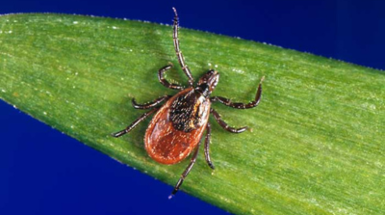Mpox Virus
Mpox (formerly monkeypox) is a disease caused by infection with the mpox virus. Mpox can cause a rash that may look like pimples or blisters, sometimes with a flu-like illness. The Cincinnati Health Department (CHD) Communicable Disease Unit continues to respond to mpox reports and provide resources to the community. The information below will help you make informed choices when you are in spaces or situations where mpox could be spread.
Mpox can be spread from 1-4 days before symptoms start until the rash has healed, all scabs have fallen off, and a fresh layer of skin has formed. This can take several weeks.
What should a person do if they have new or unexplained rash or other symptoms?
Immediate Actions:
- Isolate at home.
- Contact your primary care provider or Urgent Care center before arriving in person. Let them know you have symptoms or have a confirmed exposure. This will allow staff time to prepare for a safe visit for you, them, and other patients. When you see your health care provider, wear a mask. If you don’t have a provider or health insurance, contact a City of Cincinnati Primary Care (CCPC) health center near you.
- If you are diagnosed with mpox, a CHD communicable disease nurse will reach out to you by phone. Or you are welcome to contact the Communicable Disease Unit at 513-357-7462 with any questions that you may have.
How is mpox spread?
Mpox can spread to anyone through close, personal, often skin-to-skin contact, including:
- Direct contact with mpox rash, scabs, or body fluids from a person with mpox, as well as areas around the anus (butthole), rectum or vagina. We believe this is currently the most common way that mpox is spreading in the U.S.
- The risk is considered low for getting mpox by touching objects, fabrics, and surfaces that have been used by someone with mpox and not disinfected, such as clothing, bedding, towels, fetish gear, or sex toys.
This contact can happen during intimate contact, including:
- Oral, anal, and vaginal sex or touching the genitals (penis, testicles, labia, and vagina) or anus of a person with mpox.
- Hugging, massage, and kissing.
- Prolonged face-to-face contact.
What are the symptoms of mpox?
Symptoms of mpox can include:
- Fever
- Chills
- Swollen lymph nodes
- Exhaustion
- Muscle aches and backache
- Headache
- Respiratory symptoms (e.g., sore throat, nasal congestion, or cough)
- A rash that can initially look like pimples or blisters and may be painful or itchy. This rash may be located on your hands, feet, chest, face, or mouth or near the genitals, including penis, testicles, labia, and vagina, and anus.
The rash goes through different stages, including scabs, before healing completely. The illness typically lasts 2-4 weeks. Sometimes, people have flu-like symptoms before the rash. Some people get a rash first, followed by other symptoms. Others only experience a rash.

Can I get the mpox vaccine?
There is a vaccine available for mpox. While the vaccine is not recommended for the general public, the Centers for Disease Control and Prevention (CDC) recommends vaccination against mpox for:
- People who have been told by their health department that they are a contact of someone diagnosed with mpox.
- People who find out a sexual partner in the past two weeks has been diagnosed with mpox.
- People who had multiple sexual partners in the past two weeks in an area with known mpox.
- People who work in medical labs and some health care or public health workers.
If you have been in contact with someone who has been diagnosed with mpox or are concerned about mpox and interested in vaccination, call us at 513-357-7462.
Resources
Ohio Department of Health (ODH) - Frequently Asked Questions about Mpox
CDC Mpox Home Page | Viruela símica (mpox en inglés)
-
What to Do If You Are Sick | Lo que se debe hacer en caso de enfermarse
-
Mpox Vaccination Basics | Aspectos básicos de la vacunación contra la viruela símica (mpox en inglés)
-
Mpox Infections after Vaccination | Infecciones por viruela símica (mpox en inglés) posteriores a la vacunación
-
Clinical Considerations for Mpox in Children and Adolescents
-
Patient’s Guide to Mpox Treatment with Tecovirimat (TPOXX) | Guía del paciente para el tratamiento de la viruela símica (mpox en inglés) con tecovirimat (TPOXX)
TPOXX Treatment Trial: Study of Tecovirimat for Mpox (STOMP) | STOMP Frequently Asked Questions (FAQs)
CHD Resources
Resource for finding clinics and notifying partners anonymously: TellYourPartner.org






